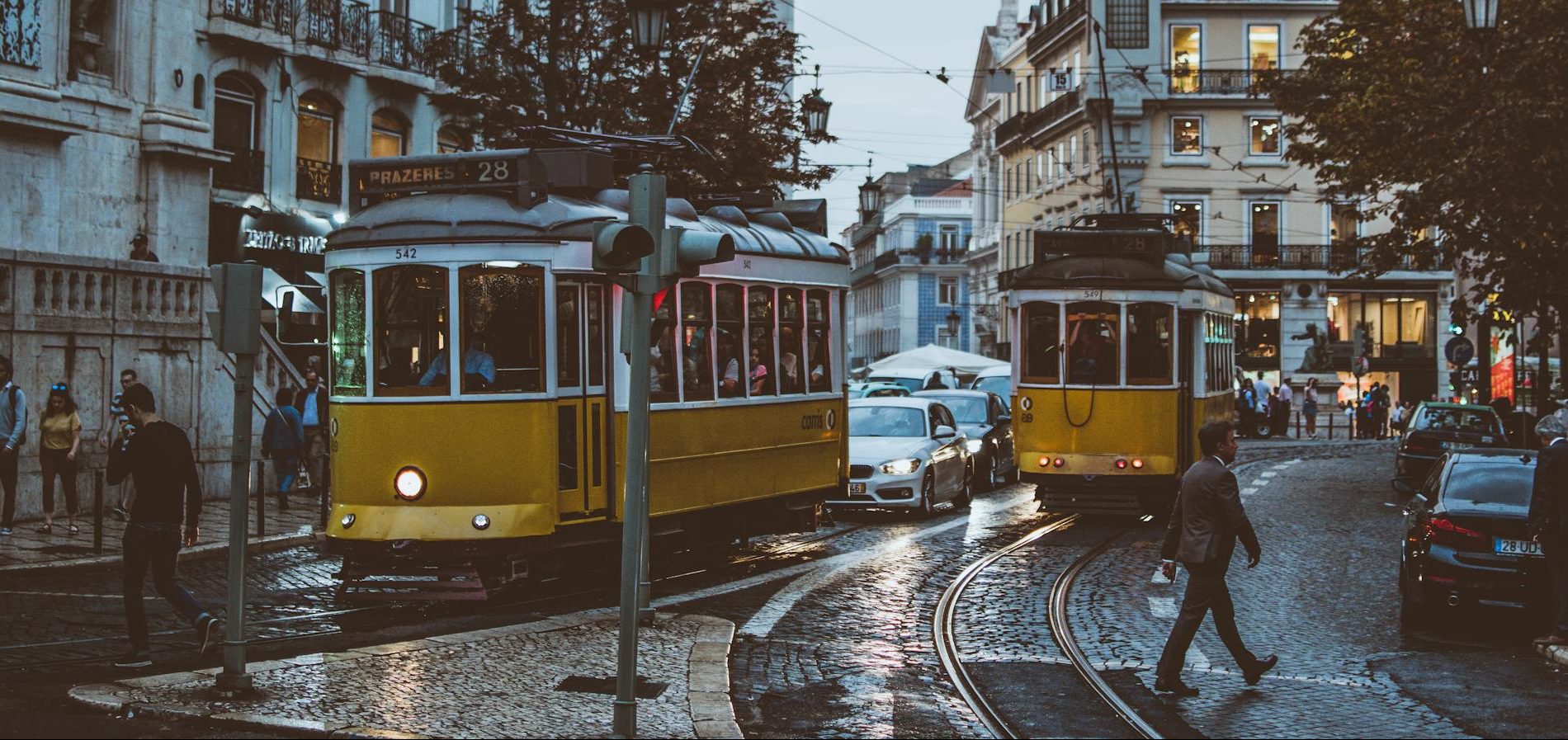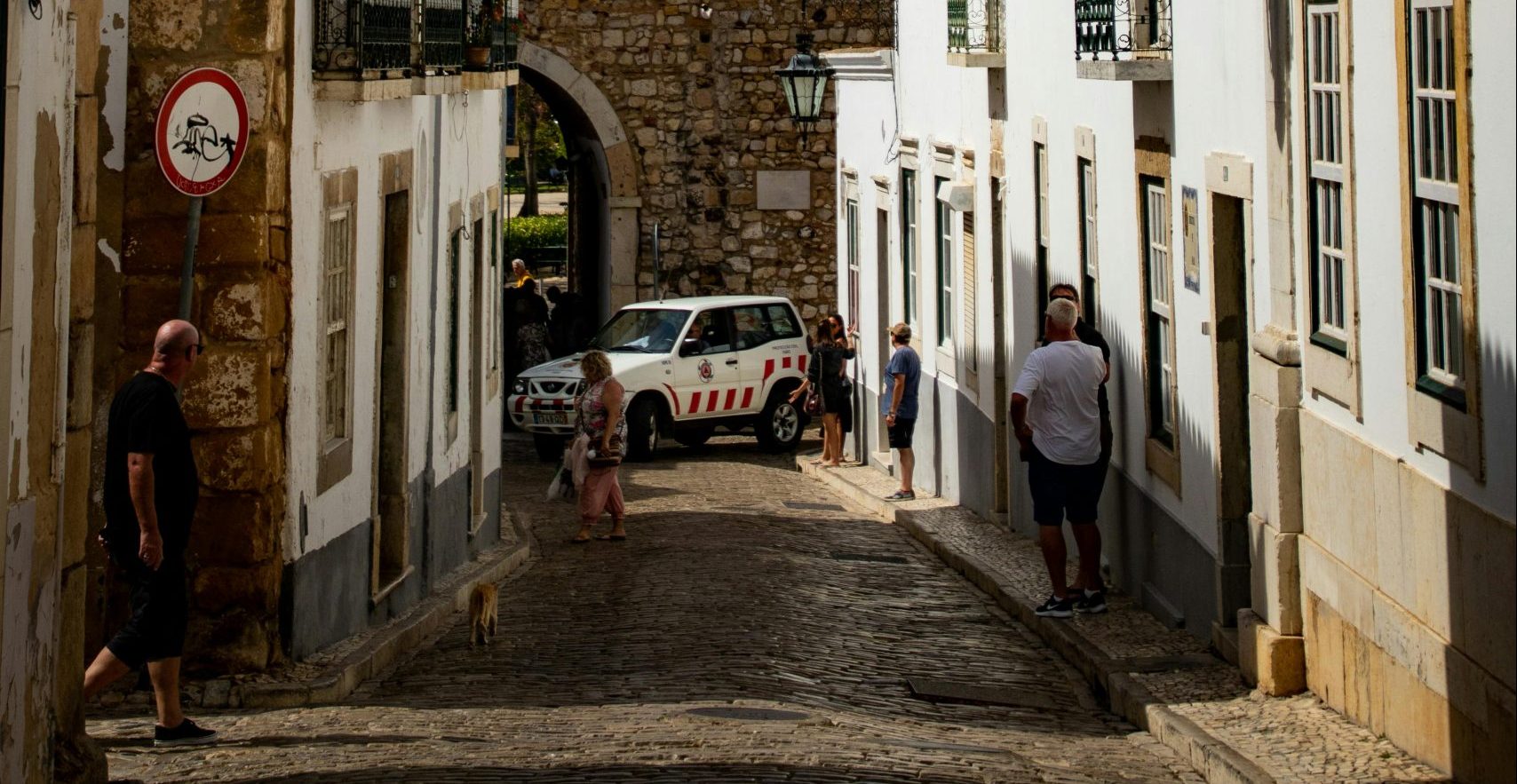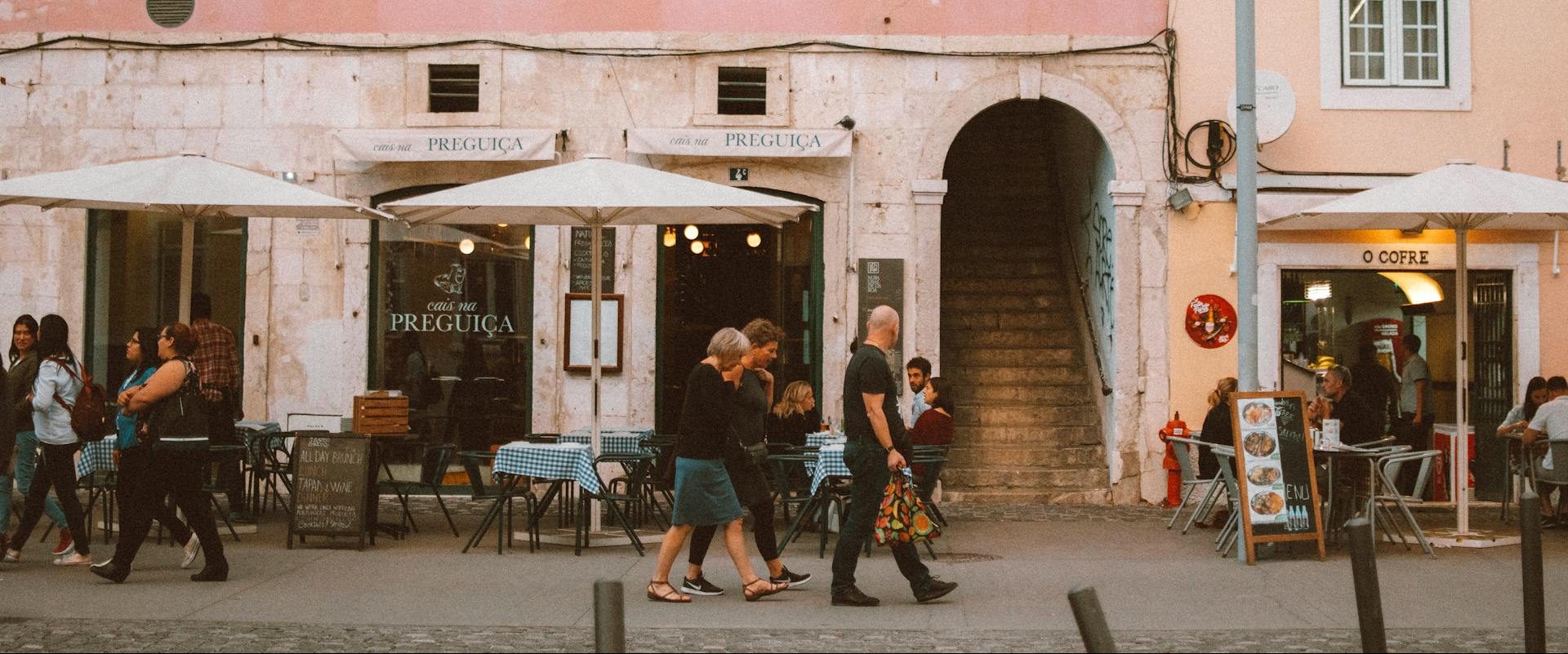
Are you considering a trip to the sunny shores of Portugal or planning a more permanent move? Portugal is a top destination for travellers worldwide with its rich history, stunning landscapes, and mouth-watering cuisine. But, as with any destination, safety comes first, especially concerning politics, climate, and some traumas still lingering from the pandemic. Portugal has been overcoming these issues carefully one by one, and the prediction is for favourable winds. So, “Is it safe to travel to Portugal right now?” you may wonder. Let’s dive into the details to ensure you see for yourself the details, keeping safety, healthcare, and social issues in mind.
Travelling or Moving to Portugal from the EU and the UK, for example, offers tourists and expats a unique blend of high safety standards, affordable living, and a family-friendly environment. Thanks to its low crime rates, Portugal ranks as one of the safest countries in the world. Portugal’s cost of living is significantly lower than other Western European countries and the United States. This affordability extends across various aspects of life, including housing, utilities, dining out, and education. So, regarding housing and food, you are generally covered depending on your choices. The challenges to be aware of lie in bureaucracy, which can be slow and require patience, especially when dealing with public services and obtaining essential documents. Additionally, while the national language is Portuguese, English is widely spoken, particularly in tourist areas and major cities, but learning the local language can significantly enhance your chances of communicating and obtaining the right help if needed.
With its picturesque landscapes, history, and vibrant culture, it still stands out today as a popular destination for expats and tourists from all around the globe, as well as it should. Portugal shines as a reference for safety on the global stage, especially when compared to other destinations. It’s not just about low crime rates; the overall atmosphere of peace and community sets Portugal apart.
The Azores, Madeira, Cascais, Aveiro, Faro, Lisbon, and Porto are explicitly highlighted as safe areas with low crime levels. These areas are known for their high living standards. However, as in any major city, tourists and newcomers must stay informed and adopt basic safety measures. Let’s focus on three of them to give you more details.
Lisbon: The vibrant capital is generally safe and has a lower crime rate than other European capitals. Expats should be vigilant in tourist-heavy areas and on public transport, where pickpocketing can occur. Nighttime safety is also good, but avoiding less populated and poorly lit areas is advisable after dark, just like in any other city you have recently arrived in.
Porto: Known for its charming streets and historic architecture, it is similarly safe for expats and tourists. The city has a friendly and welcoming atmosphere, but again, standard precautions should be taken against petty theft, especially in crowded places.
Faro: While smaller, it offers a relaxed lifestyle typical of the Algarve region. Even at night, the city is very safe, although expats should remain cautious during the tourist season.
In all these cities, healthcare services are accessible and efficient, adding an extra layer of security for expats regarding health concerns. Engaging with the local community and respecting local customs can also enhance an expat’s safety and overall experience in Portugal.
Portugal’s public health system is favoured over private options due to its high quality. This must be one of the first questions when caring for your family and yourself in another place, especially if you are looking forward to living and retiring in a foreign country. When pondering whether Portugal is safe to travel or live in, it’s essential to consider the healthcare services.
It’s advisable for non-EU residents to have travel insurance, but know that registering for public health insurance after establishing yourself as a resident is straightforward, debunking myths of overwhelming bureaucracy. If you face an unexpected illness or injury, rest assured that The European Health Insurance Card (EHIC) is granted to newcomers and is as easy as acquiring a phone plan. It allows EU residents to access public healthcare at reduced costs, equivalent to what a local would pay. It’s common to find pharmacies open 24 hours per day, in case you need to take care of a lighter issue no matter where you are.
Diseases like cancer have free treatment, to give a general idea. This reflects the country’s commitment to healthcare and ensures that natives and newcomers won’t have to worry about financial burdens in such hard times.
Portugal’s progressive stance on drugs, treating consumption as a health issue rather than a crime, contributes to public safety. Since decriminalisation in 2001, there’s been a focus on treatment and rehabilitation, reflecting a compassionate and practical approach to public health.
As in any destination, Portugal has its share of scammers. However, newcomers and travellers can avoid common pitfalls by staying informed and vigilant. The general advice is to use common sense and not engage with overly persistent street vendors or unsolicited offers. While Portugal is generally safe, no place is free from petty crimes. Watch out for scammers and pickpockets, especially in tourist-heavy areas. Always stay aware of your surroundings and keep your valuables secure.
Public transportation is an essential aspect of daily life for expats residing in a new country. In Portugal, public transportation systems such as buses, trams, and metros are generally safe, efficient, and well-maintained, making them a popular choice for locals, tourists and expats. However, as with public transport systems worldwide, it’s important to stay vigilant to minimise risks.
When using public transport, always be aware of your surroundings and secure personal belongings, particularly in crowded conditions where pickpocketing could occur. It is advisable to avoid displaying expensive gadgets or jewellery openly. During late hours, try to travel in groups or stick to well-lit, populated areas when waiting for or exiting transport.
In emergencies, familiarise yourself with the local emergency contact numbers and the location of emergency buttons within vehicles or stations. Most public transport systems in Portugal have clear signs and instructions in multiple languages, making it easier for expats to navigate and seek help if needed.
By following these precautions, expats can confidently and safely use Portugal’s public transport systems, ensuring a more enjoyable and stress-free experience while exploring or commuting in the country.
Portugal is a favourable destination for students worldwide. It is generally safe, with low crime rates and welcoming people. Here are some safety tips specifically tailored for international students.
Stay Alert and Trust Your Instincts: Always be aware of your surroundings, especially in crowded or unfamiliar areas. Trust your instincts and remove yourself if something doesn’t feel right.
Maintain a Low Profile: As an international student, you might stand out, so blending in as much as possible is advisable. Avoid drawing unwanted attention by speaking loudly or dressing conspicuously. Adapt to local customs and dress codes.
Understand Local Laws and Customs: Familiarise yourself with Portugal’s laws, customs, and etiquette. Respecting other people’s space and local practices ensures your safety and enhances your living experience.
Health Precautions: Make sure you have comprehensive health insurance coverage and understand the healthcare facilities available in Portugal. Before travelling, check the required vaccinations and health advisories. Portugal offers excellent healthcare services, and it is crucial to understand how to access them in an emergency.
Alcohol Consumption: Enjoy social events responsibly. Monitor your alcohol consumption and stay in control of your actions. It’s preferable to go out in groups and watch out for each other.
Emergency Contacts: Keep a list of emergency contacts, including the local police, your embassy, and medical services. Also, inform someone about your whereabouts, especially if you plan to go to unfamiliar places.
Transportation Safety: Use official taxis and public transportation. Avoid isolated areas, especially at night, and stay informed about public transport schedules.
While Portugal offers students a safe and welcoming environment, being cautious and prepared can significantly enhance your security and overall experience.
In conclusion, is it safe to travel to Portugal right now? The answer is a resounding yes. Portugal provides tourists with a secure and welcoming environment, from healthcare to personal safety and drug policy. As long as travellers adhere to basic safety principles, they can enjoy all Portugal offers without undue worry.
Considering these factors and listening to the positive experiences of past visitors, Portugal remains a top choice for a safe, enjoyable travel experience. Whether you’re a solo female traveller, a family, or someone wanting to live in Portugal, the country will welcome you with open arms and a safe environment. So, whether you are relocating from the UK or anywhere within the EU, VanOne International Movers is here to streamline your transition. Experience the seamless process of getting a quotation for your removal to Portugal with us. Safe, efficient, and reliable – we’re your partners. Check how easy it is to start your new chapter in one of Europe’s safest countries today!
 Why Are Italians Moving to Portugal?
Why Are Italians Moving to Portugal?Why Are Italians Moving to Portugal? In recent years, many Italians have decided to leave their homeland and…
 What is Expat Burnout? Causes, Symptoms, and Solutions
What is Expat Burnout? Causes, Symptoms, and SolutionsWhat is Expat Burnout? Causes, Symptoms, and Solutions Expat burnout, often referred to as expatriate burnout, is a…
 Moving Abroad and Leaving Pets Behind
Moving Abroad and Leaving Pets BehindMoving Abroad and Leaving Pets Behind Relocating to a new country often brings excitement but can also involve…
 Where is the best place for the elderly to live in Europe?
Where is the best place for the elderly to live in Europe?Where is the best place for the elderly to live in Europe? Moving abroad presents opportunities and challenges,…